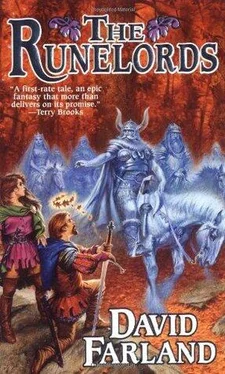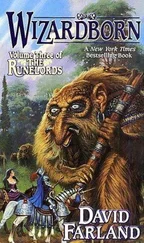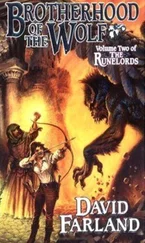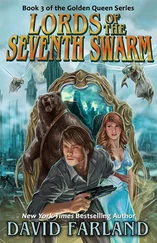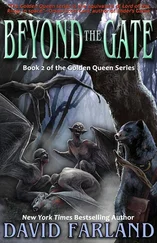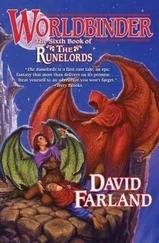David Farland - The Sum of All Men
Здесь есть возможность читать онлайн «David Farland - The Sum of All Men» весь текст электронной книги совершенно бесплатно (целиком полную версию без сокращений). В некоторых случаях можно слушать аудио, скачать через торрент в формате fb2 и присутствует краткое содержание. Жанр: Фэнтези, на английском языке. Описание произведения, (предисловие) а так же отзывы посетителей доступны на портале библиотеки ЛибКат.
- Название:The Sum of All Men
- Автор:
- Жанр:
- Год:неизвестен
- ISBN:нет данных
- Рейтинг книги:3 / 5. Голосов: 1
-
Избранное:Добавить в избранное
- Отзывы:
-
Ваша оценка:
- 60
- 1
- 2
- 3
- 4
- 5
The Sum of All Men: краткое содержание, описание и аннотация
Предлагаем к чтению аннотацию, описание, краткое содержание или предисловие (зависит от того, что написал сам автор книги «The Sum of All Men»). Если вы не нашли необходимую информацию о книге — напишите в комментариях, мы постараемся отыскать её.
The Sum of All Men — читать онлайн бесплатно полную книгу (весь текст) целиком
Ниже представлен текст книги, разбитый по страницам. Система сохранения места последней прочитанной страницы, позволяет с удобством читать онлайн бесплатно книгу «The Sum of All Men», без необходимости каждый раз заново искать на чём Вы остановились. Поставьте закладку, и сможете в любой момент перейти на страницу, на которой закончили чтение.
Интервал:
Закладка:
Some sided with Binnesman, but Hoewell was both a master scholar and a ruthless politician. Somehow he had succeeded in humiliating and disaffecting a number of minor herbalists, even though, as an Earth Warden by training, his own magical powers dealt with the creation of magical artifacts—a field apart from herbalism. Still, his political maneuvering swayed a number of prominent scholars.
So Binnesman never got the post as hearthmaster in the Room of Earth Powers. Now some people said that Binnesman had refused the post in shame, others that his appointment would never have been ratified. As Gaborn saw it, such were the lies and rumors that Hoewell promulgated to aggrandize himself.
Yet a rumor more persistent than any other arose, and this one Gaborn believed: In the House of Understanding, some good men whispered that despite the pleas of many scholars, Binnesman simply would not go to Mystarria, not for any prestigious post. He would not leave his beloved garden.
On seeing the exotic trees, tasting the scents of rare spices and honeyed flowers on the wind, Gaborn understood. Of course the herbalist could not leave his garden. This was Binnesman's life's work. This was his masterpiece.
Binnesman tapped Gaborn's boot with his foot again. The serving wench already had her shoes off. “Forgive me, Your Lordship,” Binnesman said, “but you must remove your shoes. This is not common ground.”
In a daze, Gaborn did as ordered, pulling off his boots. He got up, wanting nothing more than to stroll through these grounds for a day.
Binnesman nodded meaningfully toward the buckets of feces. Gaborn hefted his unsavory burden, and they were off, strolling across a carpet of rosemary and mint that emitted a gentle, cleansing scent as their feet bruised the leaves.
Binnesman led Gaborn through the meadow, past the deer that only looked at the old Earth Warden longingly. He reached a particular rowan tree, a tree that was phenomenally tall, a perfect cone. He studied it a moment, then said. “This is the place.”
He dug a small hole in the detritus beneath the tree, motioned for Gaborn to bring the dung.
When Gaborn brought the buckets, Binnesman emptied them into the Pit. Something clanked. Among the feces Gaborn saw objects dark and metallic.
With a start he recognized Sylvarresta's forcibles.
“Come,” Binnesman said, “we can't let Raj Ahten have these.” He picked up the forcibies, placed them back into the bucket, ignoring the dung on his hands. He walked fifty paces to the brook, where trout snapped at mosquitoes, slapping the water.
Binnesman stepped into the stream and rinsed the forcibles one by one. Then he placed them together on the bank. Fifty-six forcibles. The sun had set nearly half an hour ago, and the forcibles now seemed but dark shadows on the ground.
When Binnesman finished, Gaborn tore a strip of cloth from his tunic and wrapped the forcibles into a bundle.
Gaborn looked up, caught Binnesman appraising him, squinting in the half-light. The herbalist seemed lost in thought. His beefy jowls sagged. He was not a tall man, but he was broad of shoulder, stocky.
“Thank you,” Gaborn said, “for saving the forcibles.”
Binnesman did not acknowledge his words, merely studied him, as if peering behind Gaborn's eyes, or as if he sought to memorize Gaborn's every feature.
“So,” Binnesman said after a long moment. “Who are you?”
Gaborn chuckled. “Don't you know?”
“King Orden's son,” Binnesman muttered. “But who else are you? What commitments have you made? A man is defined by his commitments.”
A cold dread filled Gaborn at the way the Earth Warden said “commitments.” He felt certain that Binnesman was speaking of the oath he'd made this night to Princess Sylvarresta. An oath he'd rather have kept secret. Or perhaps he spoke of the promise Gaborn had made to the kitchen wench, the promise to save her, or even the silent vow he'd made to Chemoise and her father. And, somehow, he felt, these commitments might offend the herbalist. He glanced at the kitchen wench, who stood with hands folded, as if afraid to touch anything.
“I'm a Runelord. An Oath-Bound Lord.”
“Hmmm...” Binnesman muttered. “Good enough, I suppose. You serve something greater than yourself. And why are you here? Why are you in Castle Sylvarresta now, instead of next week, when your father was scheduled to arrive?”
Gaborn answered simply. “He sent me ahead. He wanted me to see the kingdom, to fall in love with its land, with its people, as he had.”
Binnesman nodded thoughtfully, stroking his beard. “And how do you like it? How do you like this land?”
Gaborn wanted to say that he admired it, that he found the kingdom beautiful, strong and almost flawless, but Binnesman spoke with a tone in his voice, a tone of such respect for the word “land,” that Gaborn sensed they were not speaking of the same thing. Yet perhaps they were. Was this garden not also part of Heredon? Were not the exotic trees, gathered from far corners of the earth, part of Heredon? “I have found it altogether admirable.”
“Humph,” Binnesman grunted, glancing around at the bushes, the trees. “This won't last the night. The flameweavers, you see. Theirs is a magic of destruction, mine a magic of preservation. They serve fire, and their master will not let them resume human form unless they feed the flame. What better food than this garden?”
“What of you? Will they kill you?” Gaborn asked.
“That...is not in their power,” Binnesman said. “We have reached a turning of the seasons. Soon, my robes will turn red.”
Gaborn wondered if he meant that literally. The old man's robes were a deep green, the color of leaves in high summer. Could they change color of themselves? “You could come with me,” Gaborn offered. “I could help you escape.”
Binnesman shook his head. “I've no need to run. I have some skill as a physic. Raj Ahten will want me to serve him.”
“Will you?”
Binnesman whispered, “I've made other commitments.” He said the word “commitments” with that same odd inflection he used when speaking of the land. “But you, Gaborn Val Orden, must flee.”
At that moment, Gaborn caught the sound of a distant barking, the snarling and raucous baying of war dogs.
Binnesman's eyes flickered. “Do not fear them. The dogs cannot pass my barrier. Those that try will die.”
Binnesman had a certain sadness in his voice. It pained him to kill the mastiffs. He grunted, climbed up out of the stream, his shoulders sagging as if worried. To Gaborn's surprise, the wizard stooped in the near total darkness, plucked a vine at the water's edge, and told Gaborn, “Roll up your right sleeve, I sense a festering wound.”
Gaborn did as asked, and Binnesman set the leaves on the wound, held them in place with his hand. Immediately the leaves began drawing out the heat and pain. Gaborn carefully unrolled his sleeve, letting his shirt help hold the poultice in place.
As if making small talk, Binnesman asked both Gabon and the kitchen maid, “How do you feel? Tired? Anxious? Are you hungry?”
Binnesman began strolling through the meadow, and as he walked, he would stoop in the shadows and pluck a leaf here, a flower there. Gaborn wondered how he could find them at all in the darkness, but it was as if the wizard had memorized their positions, knew exactly where each grew.
He rubbed Gaborn's feet with lemon thyme one moment, something spicier the next. He stopped to pick three borage flowers, their blue leaves glowing faintly in the darkness, and gently took each five-petaled flower between his fingers, then pulled so that the black stamens remained with the petals. He told Gaborn to eat the honeyed flower petals, and Gaborn did, feeling a sudden rush of calmness take him, a perfect fearlessness he'd never thought he could experience under such duress.
Читать дальшеИнтервал:
Закладка:
Похожие книги на «The Sum of All Men»
Представляем Вашему вниманию похожие книги на «The Sum of All Men» списком для выбора. Мы отобрали схожую по названию и смыслу литературу в надежде предоставить читателям больше вариантов отыскать новые, интересные, ещё непрочитанные произведения.
Обсуждение, отзывы о книге «The Sum of All Men» и просто собственные мнения читателей. Оставьте ваши комментарии, напишите, что Вы думаете о произведении, его смысле или главных героях. Укажите что конкретно понравилось, а что нет, и почему Вы так считаете.
